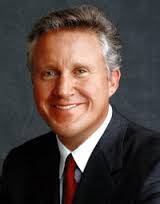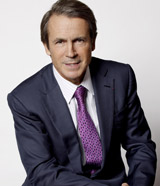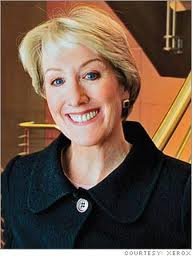In the concluding session discussion “What Would Drucker Say Now?” at the 5th Global Peter Drucker Forum, Rick Watzman, the executive director at the Drucker Institute and Steve Denning a Member of the Board of Directors at Scrum Alliance and a Forbes contributor lead the debate. The discussion is then continued by Lukas Michel, Founder & Managing Director at Sphere Advisors and AgilityINsights, before Pierre Hessler the chairman’s delegate at Capgemini gives an overall synthesis and brings the conference to a close.
According to Rick Watzman, Peter Drucker would have been very humble about complexity. Peter Drucker thought about the ways that people tried to manage complexity and about economists, who for a long time were thought to be infallible. This has since been shown not to be true.
Peter Drucker always wanted to write the book “Managing Ignorance” but unfortunately never got around to it. Drucker told students to address problems with their ignorance, he believed in bottom up strategy and would have been in favor of self-organizing structures. Even as early as 1954, he predicted that structures that tried to control from the top would perish.

Check all post conference material here.
Peter Drucker also saw management as a liberal art, a student once asked him what to do in order to become a better manager. Drucker replied that the student should learn to play the violin. According to Drucker, continuous learning was key to survival and so was putting the customer in the center. He would also have loved the idea of reaching behind our own walls, an idea that John Hagel III talked about. Core values of passion, people and profit would have been central to what Peter Drucker thought; economic pursuits were important in his opinion, but not the sole values of life.
Steve Denning then gave his thoughts on “What Would Drucker Say Now?”
In Steve Denning’s opinion, management may often be seen as being boring, but it certainly does matter in the world. In his opinion, Peter Drucker would have been struck by the realism of what was discussed during the conference (5th Global Peter Drucker Forum). We often experience management conferences that give the impression of everything being perfect. Due to this misconception, cynicism and mistrust often arise in organizations. Cynicism and mistrust are true indicators that companies are in trouble and need change. This is a commonality between the public and the private sector, as both need design thinking, networks and to adapt to the new world.
Steve Denning adds that there is a convergence in talking about things. He remarks that the word purpose had been evoked many times during the conference (5th Global Peter Drucker Forum). In 1973, Drucker pointed out that if money becomes the purpose, then things go awry. Therefore the purpose of an organization is to provide value for individuals.
The conference also showed some common ground in how organisations are structured. 20th century management never solved the problem of how to combine discipline, execution and continuous innovation possibly due to the fact that the values of the 20th century organisation were efficiency and predictability. Nowadays transparency has come into the mix and become key, as has continuous improvement. Even communication, which has always been top down has nowadays become multi-dimensional. In present times, big organizations such as JP Morgan can end up having problems and even be forced to abandon twitter sessions, due to the mass of negative comments.
Access all GlobalEd conference articles here.
Rounding off the conference, Lukas Michel, provides a selction of some highlights of the 5th Global Peter Drucker Forum.
Overall 3000 tweets were sent during the two day conference, with 460 users that reached 10 million people; for example David Anderson sent 100 tweets.
Another highlight of the conference was the question: Why are there always the wrong people at these conferences?
Rick Watzman answered: The Peter Drucker Forum is a behavioral change organization therefore the conference may be preaching to the choir. Perhaps an assignment would be to bring an acquaintance who doesn’t share your world view next time.
Futhermore, Lukas Michel states that perhaps the reason that Peter Drucker’s ideas are not really taught in business schools is because he was not a true academic. Also Peter Drucker saw business schools as an eco-system, whereas most business schools focus more on and apply a lot of silo teaching.
Steve Denning adds, that changing the organization is vital – there is a sense that we are moving from the world of ‘either, or’ to ‘and’ and ‘and’.
Pierre Hessler brings the conference to an end by concluding that we should celebrate complexity, rather than mourn it. More and more products and services of companies will remain connected to the company, sending back information. This is a fact we should celebrate.
He adds that nowadays employees are in a more ambiguous position, as they may be networked during office hours or working outside of office hours and the company now may even have access to their network.
Peter Drucker put customers at the center of everything. Today customers are becoming producers, rather than just receivers of goods and services.
Furthermore Peter Hessler states that, all executives have been trained to translate complex ideas into simple ideas and priorities. In his opinion this is needed now, more than ever. You need to create simplicity with a purpose, above all for your own people within the firm. These people should be able to self-organize whenever possible and the good things should not overwhelm them. The second target of simplicity needs to be the customer, as the customer now lies very much at the center of an organization. The position of the customer may be disturbing for the company, yet corporations need to bring all of the work they do for their customers to a single experience and harmonize the procedures. The result of the harmonization should be a rich and very satisfying experience for all.
Executive Director, Drucker Institute, Time contributor and author
Member of the Board of Directors Scrum Alliance, Forbes contributor
In 2000, Steve Denning was selected as one of the world’s ten Most Admired Knowledge Leaders (Teleos) and in 2003 he was ranked as one of the world‘s Top Two Hundred Business Gurus by Davenport & Prusak, „What‘s The Big Idea? (Harvard, 2003).He now works with organizations in the U.S., Europe, Asia and Australia on leadership, innovation, business narrative and most recently, on radical management.Steve Denning is the author of the award-winning books “The Leader‘s Guide to Radical Management: Re-inventing the Workplace for the 21st Century“ (Jossey-Bass, 2010), „The Secret Language of Leadership” (Jossey-Bass, 2007) and “The Leader‘s Guide to Storytelling” (Jossey-Bass, 2005).
Chairman’s delegate, Capgemini
Pierre Hessler is a Capgemini Fellow and Chairman’s delegate. He focuses on business transformation, business technology and corporate management. He is also a board member of Bureau Veritas SA and head of Actideas. Pierre Hessler joined in 1993 Cap Gemini, where he served in several executive positions, notably as a member of the Directoire and as chairman and CEO of Gemini Consulting. He served on the board of directors between 2000 and 2012.Pierre Hessler started his career in 1965 in IBM Switzerland, holding executive positions in Europe and in the United States, notably as corporate vice-president for marketing, and general manager for marketing, services and operations of IBM Europe.






















Pingback: In business to create a customer | Vision.Strategy.People.Business/biancalcassidy